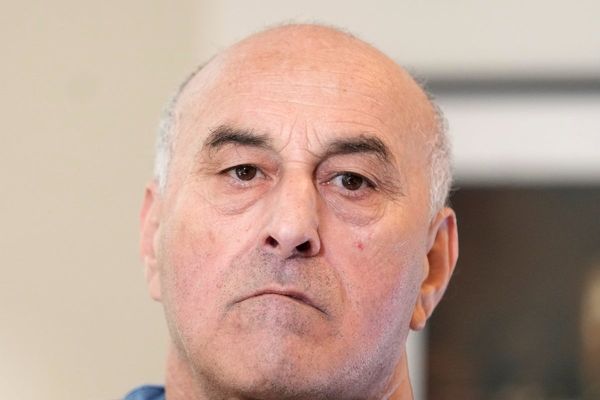
Tsitsi Dangarembga’s Nervous Conditions, a novel about growing up in colonial Zimbabwe, is one of the most important works of 20th-century African literature and features on university curricula across the UK. British students can order a used copy for less than £3.
But there is one place readers struggle to find it: Harare, the capital of Zimbabwe and Dangeremba’s home town, even though it is published in paperback across the border in South Africa. “It’s very, very difficult to find my books anywhere in Zimbabwe,” says Dangarembga.
African literature is thriving, and its impact on the global literature scene continues to grow. In 2021, African authors scooped the Nobel prize for literature, the Booker prize and the Camões prize for literature, the Portuguese-speaking world’s highest literary award. The New York Times hailed it as “the year for African literature”.
This year the release of Chimamanda Ngozie Adiche’s first novel in 10 years is a hotly anticipated publishing event; many more authors from the continent continue to win recognition in Europe and America, from Zambian writer Mubanga Kalimamukwento to Nigerian Damilare Kuku.
Yet most Africans struggle to find either new works or classics by authors like Dangarembga. Few countries have publishing industries producing books locally. Many also lack public library systems that not only lend books to readers but nurture the growth of independent publishers by buying up copies of new works, says Ainehi Edoro, founder of Brittle Paper, an online platform about African literature.
In South Africa, 43% of homes have no books and just 16% have more than five, while in Cameroon a textbook is shared by as many as 12 students. In Ethiopia, finding something good to read is a constant struggle for Dawit Berhanu, who runs an online book club called Ethiopia Book Forum. Each week, most of the 60 member in attendance have not managed to get hold of a copy of the book under discussion but tune in anyway to enjoy the exchange of ideas.
“There’s no shortage of literary talent on the African continent, it’s swarming with writers and people who want to tell stories,” says Edoro. “But the back end of the literary market still needs to be developed. They don’t have access to editors, agents and publicists who can address local contexts.”
In most African countries, booksellers import stock. Weak currencies make this process expensive. Some nations, such as Kenya, tax books, pushing prices up further.
The Shadow King, about the women who resisted fascist Italy’s occupation of Ethiopia in the 1930s, by Maaza Mengiste, was short-listed for the Booker prize in 2020. It costs £9 in the UK. At one of Addis Ababa’s few bookshops, it fetches 3,000 Ethiopian birr (about £19). To put this in context, a university lecturer makes 11,500 birr (£72) a month.
“Cost is the main barrier to access,” says Tinashe Mushakavanhu, a Zimbabwean academic at the University of Oxford. “People would rather buy bread than books, that’s the harsh reality.”
The solution, says Edoro, is to develop “organic, homegrown publishing markets”. “Once you have that, books will move and flow in affordable ways,” she says.
Edoro points to her home country of Nigeria as an example. In the past two decades, several new publishing houses have sprung up. These outfits not only take on emerging Nigerian writers, they also buy rights to international bestsellers and print Nigerian editions, which means they are available and affordable.
“For a long time, Nigerians didn’t get a lot of the books they wanted to read. Now people can access most African titles,” says Othuke Ominiabohs, founder of Masobe Books, an independent Nigerian publisher.
Since it began in 2020, Masobe Books has signed more than 100 authors and sold more than 100,000 books. Its success lies in forming relationships with brick-and-mortar stores, creating a buzz around books on social media, and fresh cover designs, as well as great writing at realistic prices.
“When we started, everyone was buzzing about the covers,” says Ominiabohs. “They were new, refreshing, bold. And then the stories within those covers were very exciting, very Nigerian. They were not about people in the US or the UK. They were stories about people who lived in Nigeria, who worked in Nigeria, who ate Nigerian food. They were relatable.”
Elsewhere, writers are finding ways to innovate. Crowdfunding is useful to self-publish. In Zimbabwe, several authors use WhatsApp groups to write and distribute their books, releasing chapters for free and charging a small fee to continue reading. In Ethiopia, two tech developers have launched an ebook and audiobook platform, Tuba, where books can be downloaded to an app, at a fraction of the cost of a physical copy.
“It’s getting bigger and bigger,” says Dagnachew Tesfaye, one of Tuba’s founders. “It’s early days, but we hope to sell hundreds of thousands of books.”
A Kenyan digital education platform, eKitabu, launched a publishing arm, Mvua Press in 2024. So far it has published 10 books, partnering with street sellers to distribute them and keeping costs down by printing its books. It also runs a “writer’s cafe” in Nairobi to help new authors turn nascent ideas into submittable manuscripts.
“We believe there is a market for books in Africa if they can be more accessible and cheaper for readers,” says Mercy Kirui, the publishing manager of Mvua Press. “We want to see a book written by an African author becoming a hit in Africa before it becomes a global bestseller.”







